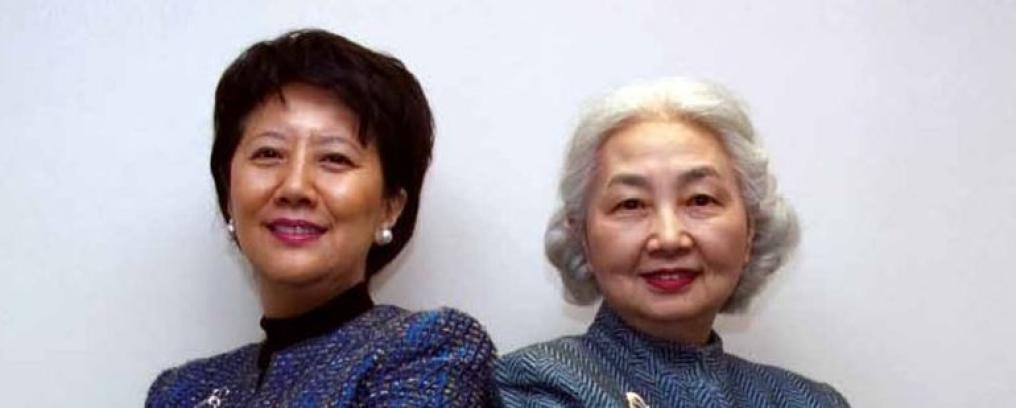Andrew Sheng and Xiao Geng of the Fung Global Institute argue that if China's economic rise is to advance it must develop the rule of law. This means institutions and practices consistent with representative government must be created. It's a long road ahead and the journey has only just begun.
Aconsensus is rapidly emerging within China that the rule of law
is the single most important precondition for inclusive, sustainable, and long-
term peace and prosperity. So it is worth considering how the rule of law differs from China's current institutional arrangements.
The rule of law has been defined in a variety of ways, but most authorities agree on certain key characteristics. As Kenneth W Dam of the University of Chicago formulates it in his book The Law-Growth Nexus, the rule of law excludes secret law and legal impunity, while protecting individuals from legal discrimination and enforcing rules that favour them to their benefit.
Thomas Bingham, former Lord Chief Justice and Senior Law Lord in the UK, proposed a somewhat more expansive, though clearly compatible, definition. For Bingham, the law must be accessible and – insofar as possible – intelligible, clear, and predictable. Everyone should be governed according to law, insulated from the personal discretion of those in power, and legal disputes should be resolved without prohibitive cost or inordinate delay. There should be equality before the law, together with adequate protection of fundamental human rights.
Moreover, state power should be exercised reasonably, in good faith,
and for the purposes for which it was conferred, with independent courts and judicial review of legislation ensuring that government does not exceed the limits of its authority. The courts and other official adjudicative bodies should provide fair procedures. And the state must comply with its obligations in international law.
The rule of law cannot be built overnight. In England, the common law tradition evolved over hundreds of years through thousands of legal cases in which local lawyers, judges, and juries played key roles. In Continental Europe, meanwhile, the rule of law appeared in the form of the civil law tradition, which originated from Roman and Napoleonic codes that were revised periodically in response to regime change and revolution.
Under both traditions, the rule of law requires a living body of rules and practices that adapts to changes in values, institutions, practices, expectations, and behaviours in a complex social system. This may be why Alexis de Tocqueville's The Old Regime and the Revolution is widely read today in Beijing.
Over the last 30 years, China, which adopted the civil law tradition, has advanced rapidly along the path of rule by law, enacting laws and regulations similar to those in the West. It now enforces rules, regulations, and property rights for real estate and other assets, for starting a business, for employment, and for international trade and investment – all of which has made China's economic rise possible.
But, as China's economy and society advance, engagement with global markets and growing awareness of rights have caused expectations to change faster than the law and judicial practices. The Chinese people are no longer satisfied with rule by law and are demanding an end to systemic corruption, inadequate land rights, discrimination against migrant workers, state-owned enterprises’ privileged position, and weak protection of intellectual property.
Will China be able to establish the rule of law as it is understood and practiced in the West and elsewhere in Asia?
In the absence of an independent judiciary, legal disputes in China are often resolved administratively, which means that discretion and lack of due process are a constant danger: as the Chinese saying goes, it is easy for someone to catch fish in muddied waters. This is why a key Confucian principle holds that one cannot rule the state without exercising discipline over oneself.
Indeed, it is unclear whether a judiciary that is independent of the Chinese Communist Party (CCP) can be developed, or how the CCP should separate itself from the government machinery. As Peking University law professor He Weifang has asked, should the CCP first subject itself to the Chinese constitution?
China faces a long journey in building the rule of law, and sequencing that journey requires a holistic understanding of the role of the CCP. That role partly reflects the CCP's birth in 1921 out of the violence and chaos that followed the collapse of the Qing Dynasty nine years earlier, as well as the three decades of civil war and Japanese colonisation that intervened before the party took power in 1949.
That legacy has shaped a deep aversion to the chaos arising from war and civil strife, and drove the CCP under Zhou Enlai to seek growth and stability through the 'Four Modernisations’ of agriculture, industry, national defence, and science and technology. Over time, the CCP has demonstrated its willingness to change its institutions, policies, style of operations, and short-term objectives in order to advance its core mission of building a modern China.
Outside observers often forget that reform in China involves changing the oldest, largest, and most complex bureaucracy in the world. Over the last few decades, the CCP has succeeded in building the hard physical infrastructure of a modern state, but the creation of the soft infrastructure – institutions and practices consistent with the rule of law and representative government – is only beginning.
Given China's past experience, we are likely to see a period of institutional innovation, characterised by marginal changes leading to a system of checks and balances on the exercise of state power. This will require orchestration from the top and experimentation at the bottom.
Nowadays, the proliferation of social media both facilitates that task and makes it more urgent. Successful models and effective policies can be shared and emulated more easily than ever, which will persuade more people than ever that there is no alternative to the rule of law if China's modernisation is to continue.
Andrew Sheng
President, Fung Global Institute
Xiao Geng
Director of Research, Fung Global Institute
The Fung Global Institute (www. fungglobalinstitute.org) is an independent think-tank producing research on global issues from Asian perspectives that are relevant both to business leaders and policymakers.
Andrew Sheng is a former chairman of the Hong Kong Securities and Futures Commission and is currently an adjunct professor at Tsinghua University in Beijing. A review of his presentation at the HKICS Member's Luncheon held on 18 July 2012 at the Foreign Correspondents Club is available in September 2012 edition of CSj (see 'A crisis of values’ on pages 24–25). Copyright: Project Syndicate, 2013經綸國際經濟研究院的沈聯濤和肖耿認為,中國經 濟若要進一步發展強大,就必須建設法治社會。
香港——中国社会正在迅速形成一 个共识: 法治建设是实现包容、 可持续、及长久和平与繁荣的一个最重 要的前提。因此,我们有必要思考中国 现行体制与法治之间的差距。
法治的定义多种多样,但多数权威已经 就某些关键的特征达成共识。芝加哥大 学的肯尼斯·达姆在其新著《法律与增 长的关系》中指出:秘密法和有罪不罚 违反法治精神,法治保护个人免遭法律 歧视,并对有利于当事人的规则如实执 行且允其受益。
英国前首席大法官兼上议院司法委员托 马斯·宾厄姆曾提出过一个涵盖范围更广 的类似的定义。在宾厄姆看来,法律必须 为芸芸众生提供保护,并尽可能做到简 单明了、可以预测。所有人都必须接受法 律的管辖,并免遭当权者个人裁量权的影 响,解决法律纠纷的时间和物质成本也 应在可以承受的范围之内。法律面前应 当人人平等,同时必须对基本人权给予充 分的保护。此外,必须善意合理地行使国 家权力,并符合授予其权力的本来目的, 同时建立独立法院与立法审查制度,确保 政府不能越权操作。法院和其他正式裁 决机构应确保程序的公平。国家必须履 行其按国际法应当承担的义务。
法治建设不能一蹴而就。英国的普通法 传 统 经 历了 数 百 年 的 发 展,地 方 律 师、法 官和陪审团在数以千计的司法案例中发 挥 了 关 键 的 作 用。同 时,在 欧 洲 大 陆,法 治沿袭了民法传统,其最初起源于罗马 及拿破仑法典,并随着政权变更与革命 时常被修订。
在这两种传统下,法治都需要因时而变 的规则和惯例,以适应复杂社会体系中价 值观、制度、惯例、预期和行为的变化。也 正 因 如 此,亚 历 西 斯 ·托 克 维 尔 的《 旧 制 度和大革命》最近在北京被广为传阅。
过去30年来,采纳民法传统的中国沿着 法制(而不是法治)道路快速发展,制 定了与西方相似的法律和规则。中国已 落实房地产及其他资产领域的法律、法 规及产权规定,创业、就业、国际贸易 和投资领域也同样受到规范——正是 这些法制(而不是法治)造就了崛起的 中国经济。
然而,伴随中国经济社会的进步,其融 入全球市场和不断觉醒的权利意识已经 导致对法治预期的变化速度超过法律和 司法实践。中国人已不再满足于法制,而 是要求法治,即结束体制性腐败、土地权 利缺失、农民工歧视、国企特权地位和 知识产权保护不力的现状。
中国能否建立起西方和亚洲其他国家所 理解并实行的法治?
因缺乏独立司法制度,中国的法律纠纷 常需要行政解决,这就意味着自由裁量 和缺乏既定程序的风险一直存在着:中 国有句古话——浑水摸鱼正是形容这种 情况。因此才有一条重要的儒家原则: 修身才能治国。
事实上,能否在中国建立独立于政党的 司法制度,或政党如何与政府机器分离 目前尚难明确。正如北大法学教授贺卫 方所问,党是否应该受到宪法的规范?
中国的法治建设长路漫漫,规划法治之 旅需要对党的作用有全面的认识。回顾 历史,经历清王朝垮台后长达9年的暴 力混乱后,中国共产党于1921年诞生; 三十年的内战和日本入侵之后,1949年 中共掌权。中共的诞生和成长,也部分 地体现出其历史角色与重要影响。
过去的历史使得人们对战争和混乱局 面深恶痛绝,并促使中国在共产党的 领导下通过农业、工业、国防和科技的 “四个现代化”来追求稳定与发展。随 着时间的推移,中国共产党已向世人表 明它为建设现代化中国的核心目标而 改革其体制、政策、行事风格和短期目 标的意愿。
外界观察家往往忘记中国改革所面对 的是世界上历史最悠久、规模最庞大、 最复杂的官僚体系。过去几十年来,中 国共产党已成功建立了现代化国家的 硬件基础设施,但在建设符合法治精神 与代表性政府的制度和惯例方面,即软 件设施的建设——还只是刚刚起步。
参考中国过去的经验,我们很可能见 证一个体制改革创新的新时期,其特 点是以渐进的谨慎改革推进建设国家 权力的制衡体系。这需要自上而下的 顶层设计和自下而上的地方试验相互 配合。
如今,随着社交媒体影响力的不断扩 散,这项任务变得更为容易,也更为迫 切。分享及模仿成功模式和有效政策比 以往任何时候都更加容易。这就是为什 么越来越多的人相信如果中国的现代 化建设要继续下去,除进行法治建设外 别无选择。
沈联涛
院长, 经纶国际经济研究院
肖耿
研究总监, 经纶国际经济研究院
版权所有:Project Syndicate,2013,



